Selecting the right material for chemical pipework systems
Pipework provides the vital connection for transferring liquids between key equipment and operational processes and is available in a wide range of materials, from metal through to thermoplastic. To ensure your chemical pipework meets the demands of your application, you need to select the appropriate pipe material.
Historically, metal pipework – made from materials such as copper and stainless steel – has been used for fluid transfer. Over time, these materials have become less widely used due to their relative high cost and low levels of chemical compatibility when compared to thermoplastics.
Given their range of benefits, thermoplastics have become some of the most popular materials for chemical transfer and tank pipework. This includes their reliability, durability, corrosion resistant properties, plus their cost to manufacture. Thermoplastics are inert, which makes them able to withstand aggressive and corrosive chemicals – and therefore a useful chemical pipe material often chosen by industry pipework specialists.
Thermoplastic Pipework Systems
When it comes to chemical pipework, there are a number of thermoplastic options. Each material offers a lightweight, high-strength solution, but each type of thermoplastic has varying levels of chemical and UV compatibility, making them more appropriate for certain applications.
The options for thermoplastic pipework material include:
Polypropylene (PP)
The polypropylene structure is strong, stiff, and temperature resistant. Like similar thermoplastics, polypropylene’s acid resistance means that polypropylene piping systems are a popular choice in chemical processes – particularly where temperature is a consideration. Polypropylene is vulnerable to ultraviolet, so can degrade in direct sunlight making it a popular choice for applications away from the sun’s rays.
Polyethylene (PE)
There are various densities of Polyethylene, we specialise in applications demanding High Density Polyethylene (HDPE) taking advantage of this variants hard, opaque characteristics and high strength to density ratio, making it strong and lightweight. HDPE is chemically resistant, and its UV stability makes it suitable for outdoor use.
Polyvinylidene fluoride (PVDF)
PVDF is a highly non-reactive, heat, UV and chemical resistant fluoropolymer thermoplastic. Used in applications requiring the highest levels of purity, PVDF is resistant to solvents, acids and hydrocarbons.
Polyvinyl chloride (PVC)
PVC follows PE and PP as the third-most widely manufactured plastic. The construction industry commonly takes advantages of its durable and lightweight properties using it for drainpipes and gutters. With a smaller range of chemical resistance properties than PE or PP, it is most commonly used in water and sewage transfer.
What do you need to consider when choosing the right type of thermoplastic piping system?
- The media being transferred – what is the liquid being transferred? Is it acidic? Is it corrosive?
- The environment – the liquid temperature and that of the environment. Is the application exposed to UV rays? Do contaminants need to be avoided?
The right pipe material for you depends on the needs of your application. Taking into account the chemical resistance of a range of thermoplastics, a specialist pipework engineer will be able to advise on the right pipe material for your system.
Bespoke Chemical Pipework Contractors UK
At Chem Resist, we specialise in thermoplastic chemical transfer and storage solutions – designing and manufacturing bespoke thermoplastic pipework systems for a wide range of industrial applications. We specialise in applications using thermoplastics and design, build and install pipework systems in polyethylene, polypropylene, PVC and PVDF.
We can advise you on the appropriate pipe material for your specific system. Our specialist Pipework Systems team use their knowledge and expertise, considering surge pressure in pipes and pipe flow and any potential pipe flow restrictions to ensure the systems we design and install deliver the exact pressure and flow required.
Whether you need a new installation, an upgrade or repairs, our engineers ensure that the thermoplastic pipework systems we install are perfectly suited to your unique requirements. We also offer a full inspection, report, and repair service to help you return to operations as quickly as possible if an issue ever arises.
Find out more about our bespoke fabrications and request a quote
Contact Chem Resist to make an enquiry
